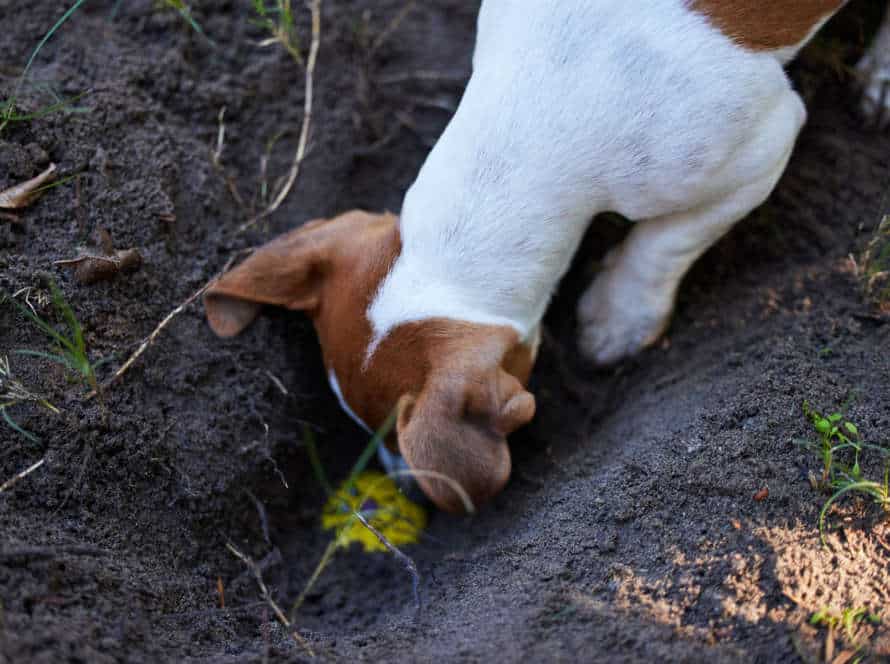Puppy Training: Preventing Barking Problems Before They Start
Puppies have a natural instinct to bark, yet too much barking can be a problem for both you and your neighbors. It is important to prevent barking problems before they start. Here are some hints to help:
- Let your puppy socialize early on. This will make them calmer and less likely to bark due to anxiousness.
- Give your puppy lots of exercise and mental stimulation. This will help them release energy and avoid boredom which can lead to barking.
- Start obedience training early. This will show your puppy you are the leader and help them learn commands like “quiet” and “no barking“.
- Use positive reinforcement to reward good behavior and discourage barking.
By following these tips, you can prevent barking problems and build a great relationship with your pup.
Understanding Puppy Communication
Puppies bark and whine. To properly train them, it’s essential to know why they vocalize. Barking is usually a sign of excitement, fear or frustration. Pups bark to show their emotions. Knowing the reasons behind puppy barking helps you intervene in the right way.
Puppy Communication Methods
Understanding puppy communication is key to successful puppy training and avoiding barking issues. Here’s the top 3 ways to comprehend what your pup is saying:
- Body language – Dogs speak with their whole body. A wagging tail usually means they are content, while a dropped tail signals submission or fear.
- Vocalization – Puppies use different sounds to talk to each other and their owners. Whining and whimpering usually mean distress, while barking often means alertness or enthusiasm.
- Smell – Dogs have an amazing sense of smell and use it to communicate through pheromones. Familiar scents, like those of family, can give a sense of comfort and safety to your pup.
By understanding your pup better, you can improve communication between you two. This’ll help with pup training and avoid barking problems.
The Causes of Excessive Barking
Excessive barking in dogs is a very common problem. Understanding the causes can help you nip it in the bud. Here are a few of them:
- Attention-seeking: Dogs bark to get their owner’s attention or when ignored.
- Territorial: To protect their territory or warn off perceived threats.
- Anxiety & Fear: When anxious or afraid, like when left alone for long.
- Boredom & Loneliness: When they’re bored or lonely and need stimulation.
By understanding the causes, you can start tackling the behavior. Pro Tip: Exercise, socialization, and mental activities every day can help prevent excessive barking.
Learning to Recognize and Interpret Different Barks
To train your puppy and avoid barking issues, you must comprehend puppy communication. Barking is how puppies express their needs and wishes. Not all barks are similar. By recognizing and interpreting various barks, you can understand your puppy’s actions and teach them accordingly.
Common barks include:
- Alert Bark: A warning or danger bark that is sharp and repeated.
- Playful Bark: A high-pitched, enthusiastic bark that often accompanies a tail wag and an invitation to play.
- Demand Bark: A constant, persistent bark that implies your puppy desires something, like food or attention.
- Anxiety Bark: A continual, whining bark that generally shows fear or anxiety, such as separation anxiety or fear of loud sounds.
By interpreting your puppy’s bark, you can determine the source of the behavior and create an appropriate answer to handle the situation.
Preventing Barking Problems Before They Start
Training pups to not bark too much can be tough. But it’s much simpler to stop issues before they even begin. It’s essential to prevent barking problems right away. This helps reduce pressure on the pup and others. To have a content house, figure out why puppies bark and how to avoid that behavior.
Creating a Comfortable Environment
Creating a comfy environment is essential to stop barking in puppies. Dogs bark for many reasons, such as boredom, anxiety, and fear. So, making a cozy living space could go a long way in reducing this behavior.
Here are the steps:
- Give your pup a nice bed and lots of toys for fun.
- Make sure your pup has access to fresh water and a healthy diet.
- Make a regular schedule for your pup – include playtime, exercise, and training.
- Don’t leave your puppy alone for too long – loneliness and boredom can lead to excessive barking.
- Introduce your pup to people and social situations from an early age, to stop fear and anxiety.
By building a comfy and stimulating living area, you can prevent barking problems and foster a trusting bond with your furry pal.
Establishing Clear Communication
Clear communication is a must for preventing puppy barking issues. Barking can be disruptive, yet it can be prevented with proper communication and training. Here are some tips to effectively communicate with your pup:
- Utilize positive reinforcement. Instead of punishing your pup for barking, reward them when they’re quiet. This teaches them that quiet gets rewarded.
- Be consistent and repetitive. Use the same commands and tone of voice all the time with your pup. Repeating training techniques helps them to pick up what you want from them quickly.
- Be aware of your pup’s needs. Frequent barking might show signs of anxiety or loneliness. Identifying your pup’s needs can help stop barking problems before they start.
By forming clear communication and following the right training methods, you’ll be able to take control of the barking issue and have a tranquil relationship with your furry friend. Pro tip: Consistency and positive reinforcement are the basics of successful puppy training. Be patient, understanding and consistent to get the best results.
Teaching Basic Commands
Training your pup? Stop barking problems before they start! Here’s how:
- “Sit”: Teach your pup to sit on command. Use treats & repetition for better results.
- “No”: Teach your pup to respond to the word “no.” This helps when correcting barking or chewing.
- “Come”: Teach your pup to come when they hear the word “come.” Essential for off-leash training.
- “Stay”: Teach your pup to stay in one place for an extended period. Prevents barking at guests or mealtime.
By teaching these commands, you’ll prevent barking problems and create a strong obedience foundation.
Addressing Barking Behavior Early
Bringing a pup home? Set good behavior fast! Do commands, boundaries and crate-training. That’s the way to prevent barking troubles. Let’s look at a few tips.
- Puppy training can help you deal with barking in the start.
Reward-Based Training
Reward-based training is a great way to prevent and address puppy barking. Here are some tips:
- Work out why they’re barking. Is it out of distress, boredom or anxiety? Find their triggers and replace barking with activities like playing, relaxing, or exercise.
- Reward good behavior. Praise them and give treats when they stop barking or show other positive behaviors. This teaches them that quiet is beneficial.
- Don’t use negative reinforcement. Yelling or punishing them will only make the problem worse, so be patient and consistent.
- Be consistent and repetitive. Puppies need consistency in their training, so keep repeating the same messages.
Pro tip: Rewards can be more than food. Work out what they love most, and use it to reinforce good behavior.
Correction-Based Training
Correction-based training is an effective way to address puppy barking. Start by discovering what triggers it. When those triggers occur, firmly say “no” and don’t give any attention for barking behavior. Redirect the puppy’s attention and reward them when they stop barking and respond to commands. Consistency is key. Address barking early to stop it from becoming a habit.
Avoid physical punishment and fear tactics. Focus on positive reinforcement and redirection to encourage good behavior. Pro-tip: Reward puppy for good behavior.
Finding the Best Training Method for Your Puppy
Early addressing of barking behavior is vital to stop barking issues in puppies. Firstly, identify what triggers the barking. Common causes are boredom, fear, frustration and wanting attention. When you know the reason, select the best type of training for your pup.
Positive reinforcement and clicker training are perfect punishments for barking in puppies. Obedience training is a vast approach which contains barking too. If you use these methods patiently and regularly, you will teach your puppy good behaviour, and stop any barking problems before they arise.
Remember: Patience and constancy are key when training your pup. It takes time for them to learn and adopt new habits.
Common Barking Issues and Solutions
Barking is natural for dogs. But it can be a problem for us humans. Dogs bark for lots of reasons. To stop the barking before it starts, it’s important to know the cause and find a solution. Here we’ll look at some of the usual barking issues and how to train your pup.
Separation Anxiety Barking
Do you have a pup that barks when left alone? That’s called separation anxiety barking, and it’s a problem many dog owners face. But don’t worry, here are some potential solutions:
- Ease your pup into being alone. Start with short periods of time away, and gradually increase it.
- Make sure your pup has a safe and comfy spot to chill when you’re gone.
- Leave familiar toys or blankets with your pup to help with their anxiety.
- Use positive reinforcement techniques to redirect any negative behaviors.
- If the behavior persists, consider seeking professional help from a vet or dog behaviorist.
Separation anxiety barking is a manageable issue, and with the right care and training, your pup can learn to feel relaxed and comfortable when you’re not around.
Territorial Barking
Territorial barking is a common problem with dogs. It’s triggered when they see people or animals near their home. This is a warning to stay away. To prevent it:
- Socialize your pup. Expose them to people and animals. This will reduce barking.
- Use positive reinforcement. Reward your pup for staying quiet.
- Limit access to windows. Keep them away from anything that can be seen.
- Train them in obedience. Teach them commands like “sit” and “stay”.
- If needed, get professional help. Seek further training if needed.
Attention-Seeking Barking
Do you have a pup that barks for attention? Don’t worry! Here are some helpful tips:
- When your pup barks, don’t give them what they want until they stop.
- Reward them when they are quiet and calm.
- Provide them with toys and puzzles to keep them occupied.
- Don’t punish them for barking. Instead, focus on positive reinforcement.
If you stick to these tips, you can avoid attention-seeking barking in your pup and build good habits. Be patient – it’ll pay off!
Additional Tips for Preventing Barking
Puppy owners – take action! Prevent barking issues by using correct training techniques. Develop a steady routine. It helps your pup learn the right behavior. Want more details on how to create a safe place for your pup? Keep reading!
Providing Adequate Exercise and Playtime
Exercise & playtime are essential for avoiding barking issues in pups. Here’s how it assists:
- Exercise burns up extra energy in puppies, reducing their need to bark due to being bored or upset.
- Play gives mental stimulation, which stops puppies from getting anxious or distressed and barking too much.
- Exercise & playtime also help pups create a routine, which makes them calmer and less likely to bark at possible dangers or changes to their environment.
To give adequate exercise & playtime to your pup, you can:
- Take your pup for regular walks & give lots of chances for outdoor fun.
- Sign up for pup classes or training that include playtime & socializing with other dogs.
- Supply interactive toys & games that stir your pup’s mind & keep them busy. Pro Tip: Making exercise & playtime a daily habit not only improves your puppy’s behavior but also strengthens your bond with your furry friend.
Consistent Training and Positive Reinforcement
Consistent training and positive reinforcement are essential for preventing barking problems in puppies. Here are some tips:
- Socialization: Introduce your pup to people, animals and different environments for building self-confidence and reducing fear.
- Exercise: Ensure your pup gets enough physical and mental activity to avoid boredom and too much barking.
- Desensitization: Gradually let your pup experience triggers that may cause barking, such as doorbells or car horns, and reward them for being calm.
- Timeouts: If your pup is overly excited or aggressive, give them a timeout in a quiet, secluded spot to relax.
Training takes effort and patience – and each pup is unique. With consistent training and positive reinforcement, you can stop barking issues and live peacefully with your furry friend.
Seeking Professional Help When Necessary
Puppy training is a must to stop barking issues in dogs. Lots of methods exist to stop bad barking, but when to get help from a pro can be hard to know. Here are a few signs you could need help:
- Barking is loud and disruptive and other techniques haven’t worked.
- Your pup is aggressive or scared when barking and it’s tough to control.
- You’ve tried different ways to stop barking but your pup still hasn’t learned.
In such cases, see a licensed vet or professional trainer. They can evaluate your pup’s behavior and give specific training.
Patience and consistency are key. Use positive reinforcement to encourage good behavior.
Frequently Asked Questions
1. How do I prevent my puppy from barking excessively?
The best way to prevent excessive barking is to start training your puppy early on. Consistent positive reinforcement for good behavior combined with redirecting attention away from barking can help prevent this problem from starting in the first place.
2. How do I know if my puppy’s barking is excessive?
If your puppy is barking excessively, it will become a problem for both you and your neighbors. You may notice that your puppy barks at everything and anything or for long periods of time. It’s important to address this behavior early on to prevent it from becoming a habit.
3. How can crate training prevent barking problems?
Crate training can be a useful tool in preventing barking problems. When used correctly, a puppy’s crate can become his safe and comfortable space where he can rest and relax without feeling the need to vocalize excessively.
4. Should I use punitive methods to prevent barking?
No, using punitive methods such as yelling, hitting or shock collars should never be used to prevent barking problems. This type of punishment can actually make the problem worse and harm the puppy both physically and emotionally.
5. Can socialization prevent barking problems?
Yes, socializing your puppy from a young age can help prevent barking problems. By exposing your puppy to different people, animals, and experiences, he will learn to be more confident and less reactive, which can reduce barking.
6. When should I seek help from a professional for barking problems?
If your puppy’s barking continues despite consistent training efforts, it may be time to seek professional help from a trainer or behaviorist. They can help identify the underlying cause of the barking and provide effective solutions tailored to your specific situation.







